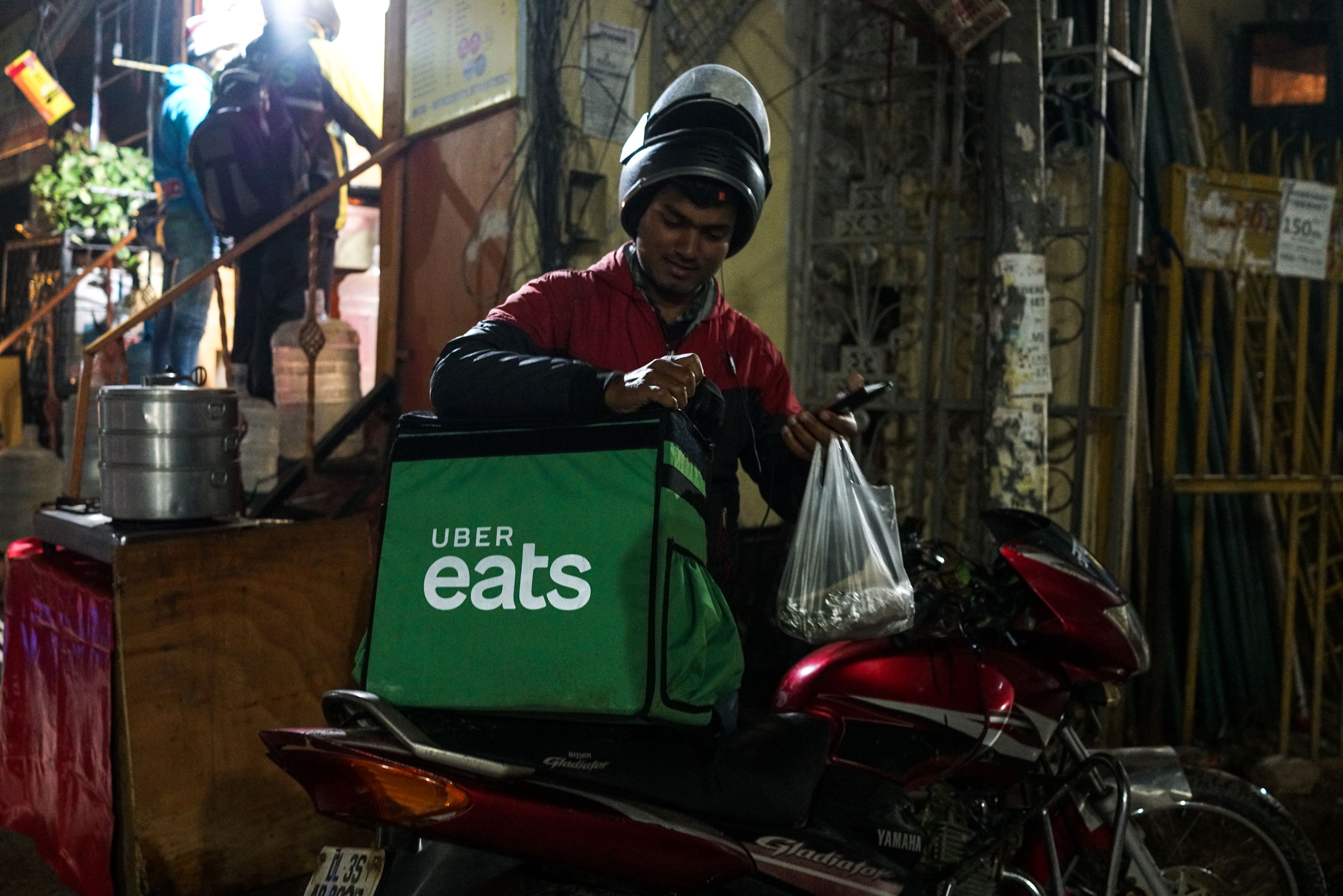The daily business briefing: January 21, 2020
Uber sells its India food delivery business, Boeing asks lenders for loans as 737 Max crisis drags on, and more


A free daily email with the biggest news stories of the day – and the best features from TheWeek.com
You are now subscribed
Your newsletter sign-up was successful
1. Uber sells India food delivery business to local rival
Uber agreed Tuesday to sell its Uber Eats food delivery business in India to local rival Zomato. Under the deal, Uber will get a 9.99 percent stake in Zomato, a startup recently valued at $3.55 billion. Uber Eats' drivers and customer information will be transferred to the Indian startup, and the Uber app will send customers who click on "Get Food Delivery" to Zomato for six months. The deal was the latest in a series of moves by Uber to shed money-losing businesses as investors increase pressure on the company to show profit. Uber Eats has been growing rapidly but strong competition from local companies in international markets has forced Uber to offer costly subsidies and promotions to attract customers.
2. Boeing in talks to secure $10 billion in loans
Boeing is trying to negotiate a $10 billion loan from banks as it confronts mounting costs linked to its 737 Max jets, CNBC reported Monday. The once top-selling jets have been grounded for months since two fatal crashes that killed a total of 346 people. The first happened in October 2018 in Indonesia, and the second occurred in Ethiopia five months later. Boeing reportedly has secured at least $6 billion in loans so far, with talks ongoing for the rest. The amount of funding Boeing is seeking exceeds what experts expected. Some analysts had forecast that the company would try to borrow $5 billion. Boeing has lost sales and temporarily halted production of the planes, and aviation regulators have not said when they expected the jets to be cleared to return to service.
The Week
Escape your echo chamber. Get the facts behind the news, plus analysis from multiple perspectives.

Sign up for The Week's Free Newsletters
From our morning news briefing to a weekly Good News Newsletter, get the best of The Week delivered directly to your inbox.
From our morning news briefing to a weekly Good News Newsletter, get the best of The Week delivered directly to your inbox.
3. Trump, Macron reach truce on digital tax
President Trump and his French counterpart, Emmanuel Macron, have reached a deal to end their dispute over digital taxes, averting threatened punitive tariffs this year, Bloomberg reported Monday, citing a French diplomat. "Great discussion with @realDonaldTrump on digital tax," Macron tweeted Monday. "We will work together on a good agreement to avoid tariff escalation." A diplomatic source told Reuters that Macron and Trump had agreed to a truce, delaying any potential tariffs until the end of 2020 while continuing negotiations on the digital tax. "They agreed to give a chance to negotiations until the end of the year," the source said. "During that time period, there won't be successive tariffs." The White House made no immediate comment.
4. Stocks struggle on fears of fallout from China virus
U.S. stock index futures fell early Tuesday, pointing to a lower open after the long Martin Luther King Jr. Day weekend. Futures for the Dow Jones Industrial Average, the S&P 500, and the Nasdaq were all down by 0.3 percent or slightly more several hours before the opening bell. Stocks were under pressure worldwide in a sign of investor concern over an outbreak of a new strain of pneumonia in China that has raised concerns of a repeat of the economic fallout from the deadly 2003 Severe Acute Respiratory Syndrome, or SARS, crisis. "I think the market might be fearing something similar," said Cristian Maggio, head of emerging markets strategy at TD Securities in London. U.S. stock markets were closed Monday for the MLK Day holiday after ending a record-setting week with gains on Friday.
A free daily email with the biggest news stories of the day – and the best features from TheWeek.com
5. Facebook to add 1,000 jobs in U.K.
Facebook's Chief Operating Officer Sheryl Sandberg is expected to announce in London on Tuesday that the social media giant will add 1,000 new hires in the U.K. by the end of the year. Many of the new employees will work on fulfilling the company's promise to remove potentially harmful content. The new jobs will bring the company's work force in the country to more than 4,000. London already houses Facebook's largest engineering hub outside the U.S. "Many of these high-skilled jobs will help us address the challenges of an open internet and develop artificial intelligence to find and remove harmful content more quickly," Sandberg is expected to say. "They will also help us build the tools that help small businesses grow, compete with larger companies and create new jobs."
Harold Maass is a contributing editor at The Week. He has been writing for The Week since the 2001 debut of the U.S. print edition and served as editor of TheWeek.com when it launched in 2008. Harold started his career as a newspaper reporter in South Florida and Haiti. He has previously worked for a variety of news outlets, including The Miami Herald, ABC News and Fox News, and for several years wrote a daily roundup of financial news for The Week and Yahoo Finance.
